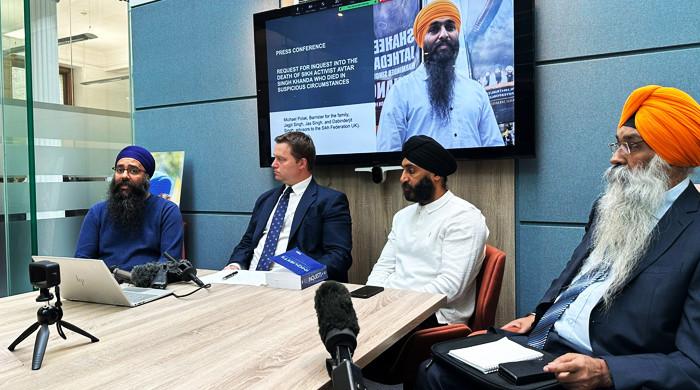On Sept. 18, Canadian Prime Minister Justin Trudeau stood in Canada’s House of Commons and accused the Indian government of involvement in the killing of Canadian citizen Hardeep Singh Nijjar.
This claim is certain to have a long-lasting effect on the two countries’ relations, and there is no easy path forward for either nation. India will never admit wrongdoing, and even if Canada retracts its accusation, the damage is done.
Nijjar was shot and killed in June outside of a Sikh Gurdwara in British Columbia. A prominent figure in the Sikh community of Canada, of which there are approximately 770,000 people, Nijjar was also a leader in the call to create an independent Sikh homeland, Khalistan, which would include parts of India.
The movement for Khalistan began in 1948 after the partition, but it gained real momentum in diaspora communities, like Canada, in the 1970s. It came to a head in 1984 when Indian forces stormed the Golden Temple, Sikhism’s holiest site. In retaliation, then-Prime Minister Indira Gandhi, who had ordered the raid, was assassinated by two of her Sikh bodyguards. Her death triggered a series of anti-Sikh riots, in which mobs went from house to house across northern India, pulling Sikhs from their homes, hacking many to death and burning others alive. The following year, a bomb exploded on Air India Flight 182 over the Atlantic Ocean, killing all 329 people on board. An investigation into the bombing revealed that Canadian-based Sikh fighters orchestrated it as revenge for the Golden Temple operation.
Since the beginning of the movement, many Khalistan supporters have been placed on terrorist lists by India. When Nijjar was added three years ago, India gave a statement accusing him of “trying to incite Sikhs to vote for secession, agitate against the Government of India, and carry out violent activities.” Despite numerous claims that the Sikh separatists are no longer a national security risk, the Indian government has continued to claim them as such. Therefore, Indian Prime Minister Narendra Modi reportedly brought concerns regarding Sikh separatists to Prime Minister Trudeau on the sidelines of the G-20 early in September. In the same conversation, Trudeau reportedly addressed his concerns about India’s involvement in the Nijjar assassination. It seems Canada does not share Prime Minister Modi’s concerns regarding the Sikh community, nor does India seem concerned regarding Canada’s accusations.
In response to Canada’s public allegations, the Indian government issued a strong denial, calling them “absurd and politically motivated” and claiming that “such unsubstantiated allegations seek to shift the focus from Khalistani terrorists and extremists, who have been provided shelter in Canada and continue to threaten India’s sovereignty and territorial integrity.” Both India and Canada are making serious claims regarding sovereignty. For context, India’s statement regarding harboring terrorists is not dissimilar to the United States’ rationale for the invasion of Afghanistan.
However, India’s unequivocal denial of any involvement in the killing of Nijjar is cause for substantial doubt in whether or not the incident occured. Furthermore, it is exceedingly rare and virtually unheard of for a democratic country such as India to conduct a covert, extrajudicial killing in another democratic country, Canada. Therefore, the Indian government should be considered innocent until publicly proven guilty. On the other hand, for Canada to present their accusation publicly to the House of Commons and the world is not a step taken without significant evidence. Furthermore, with the addition of outside intelligence from Five Eyes (U.S.-U.K. intelligence sharing), Canada’s accusation is not to be taken lightly either.
The accusation of an assassination by the Indian government is sure to send ripples through the international community, and Canada is not the only country with a large diaspora community of Sikhs. The U.K. and the U.S. have communities that are only slightly smaller.
From an international law point of view, the accusation is a claim of sovereignty violation, which, combined with assassination, is a violation of both international law and international human rights law. However, this scenario is unlikely, considering India, a commonwealth country like Canada, would have to consent to a trial, which they will not do.
As of now, in response to Canada’s allegations, India has stopped granting visas to Canadian citizens, citing “security threats.” Additionally, both countries have expelled each other’s intelligence officers and canceled future trade talks. The cancellation of trade talks is very relevant due to trade volume between the two countries. As of 2022, bilateral trade between India and Canada reached nine billion, and while this trade won’t yet cease due to the canceled trade talks, it does put it on shakier ground.
Secondly, this means that Canada has serious issues regarding sovereignty with three major economic powers in Asia: China, India and Russia. Last year, Canada accused China of interfering in Canadian elections. The souring of ties means that India is no longer a candidate for Canada to act as an economic counterbalance to China.
It is important to note that while the Five Eye countries may have assisted with shared intelligence, none are jumping to back Canada’s claims against India. India’s role as a political and economic counterbalance to China appears to be too important for many countries to wade too deeply into this dispute. This also shows that Canada’s relatively passive policies regarding international politics may be hurting them. India seems to have very little concern about losing Canada as a close partner and even less with this harming their relationship with the U.S., to whom they have made themselves almost invaluable.
Recent events show that “Prime Minister Modi is not afraid to intervene in another country if he feels India’s interests are threatened.” The “allegations and India’s denial of them show that India is not always going to play by the rules-based global system in which Canada has a profound stake.”
Claire Bickel, FCRH ’24, is an international political economy and political science major from Branford, Conn.










































































































































































































